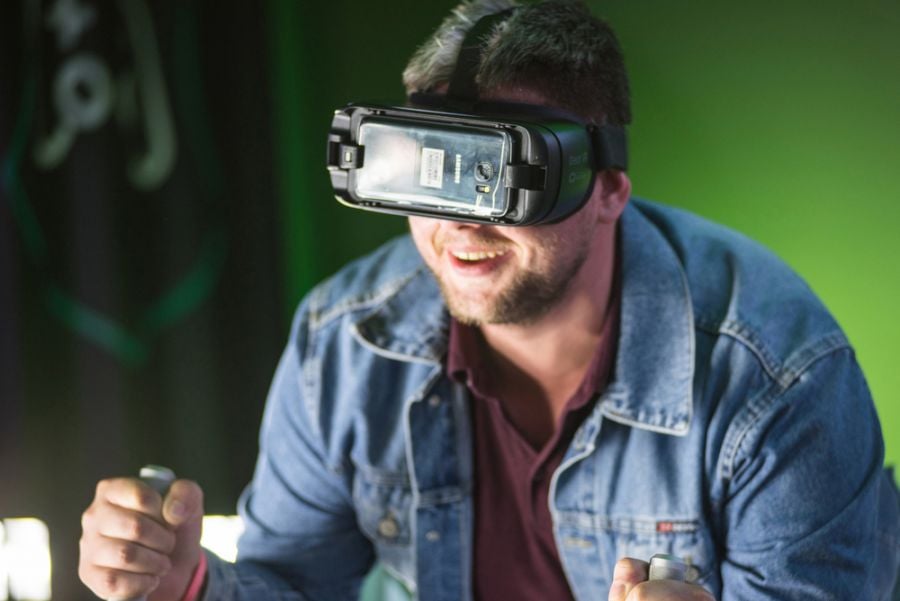The year was 1994, and change was in the air. A small company from the Isle of Man launched a virtual casino on the Internet, an emerging technology that was finally coming to mainstream prominence in the UK and the rest of the developed world. Decades later, that company has morphed into Microgaming, one of the industry’s true pioneers, and one of the most celebrated developers of online casino games. Without their exploratory approach to testing boundaries and trialling new technologies, the multi-billion dollar online gambling industry we know today might just have looked a whole lot different.
Technology never stands still, and today more than ever, the pace of change is breakneck. Mobile casinos burst onto the scene within the last decade or so, and the still relatively new technology of smartphones changed the face of how consumers and businesses use the Internet, possibly forever. But for online casinos still chasing their tails trying to get up to speed, there are risks in not looking to the next big thing.
For several years now, it feels like virtual reality has been on the verge of a major breakthrough. Improving technologies on both the hardware and software sides have made more interesting experiences possible, while increasing investment and development in content has shown glimmers of what could be a truly exciting future. But is VR really the next big technology to come to bear on the casino industry, or is it just the latest nearly-man of tech?
What VR Could Mean For Casinos
At Party Online Casino are always in search of bigger, better and more engaging games. And they don’t come ay more engaging than being totally immersed in a virtual world. One of the biggest drawbacks of online casinos is that they find it hard to compete with offline casinos, in terms of the atmosphere and the general experience value. It’s hugely convenient to play online, but it’s just not the same as getting suited and booted and heading out to a live casino environment, and for some players, that’s a disadvantage.

VR could totally flip that on its head, and make virtual casinos even more exciting than the real thing. So instead of playing a roulette game on-screen, you could be sat in any kind of virtual environment, and the same applies, for example, to slot games too. You could be playing roulette under the sea, or at one of the massive Vegas resorts, all without leaving home. It becomes even more exciting when you consider the possibilities with games like slots – you could be transported into Arthurian legend to slay dragons as play for progressives, or outer space, or…you get the idea. With virtual reality, the possibilities are endless, and this is a technology that could take casinos to the next level. It doesn’t take an industry guru to work out that this is probably likely to have a strong positive effect on casino bottom lines, either.
Will VR Ever Take Off?
This is the million dollar question, as they say. VR is no doubt an impressive technology, and it holds significant potential advantages for the casino industry, and for players. It could well grow legs and become an entertainment medium in its own right, and there are clear indications that players really do enjoy even the early prototype-level experiences available today.
But the tech pages of history are already littered with hugely exciting technologies that just failed to set the world alight, for whatever reason. For some, it’s a communication issue, with consumers and end users struggling to find enough reasons to get excited about the technology. In other cases, the technology itself never becomes stable enough or convenient enough to reach beyond specialist interest groups. In reality, VR casino gaming faces a number of these hurdles, and while plenty of interests are working together to push to make it happen, there really are no guarantees at this stage that their work will be successful.

Barriers To VR Adoption
The two most significant barriers to VR being adopted on a widespread basis are content, and hardware, respectively. On the hardware side, consumers still need to make an investment in VR technology. But who is going to invest in VR technology without incredible content to draw them in? For the time being, it’s still a niche interest, and remains a million miles away from being a mass-market product. Until the content exists to compel more people to spend their hard earned money on the required hardware, it’s going to be difficult for casinos to get in on the act.
But the conundrum centres around the content. Games are expensive and complex to produce, particularly when they are in fully immersive, 3-dimensional worlds. The incentives to develop incredible VR content aren’t there yet, because game developers know the end audience remains limited. Without the content, consumers won’t buy the gear – but without the gear, developers will find it hard to justify making the content. While there are plenty of plus points to VR technology, and plenty of investment in it floating around, there are still some seriously hurdles to be overcome.








